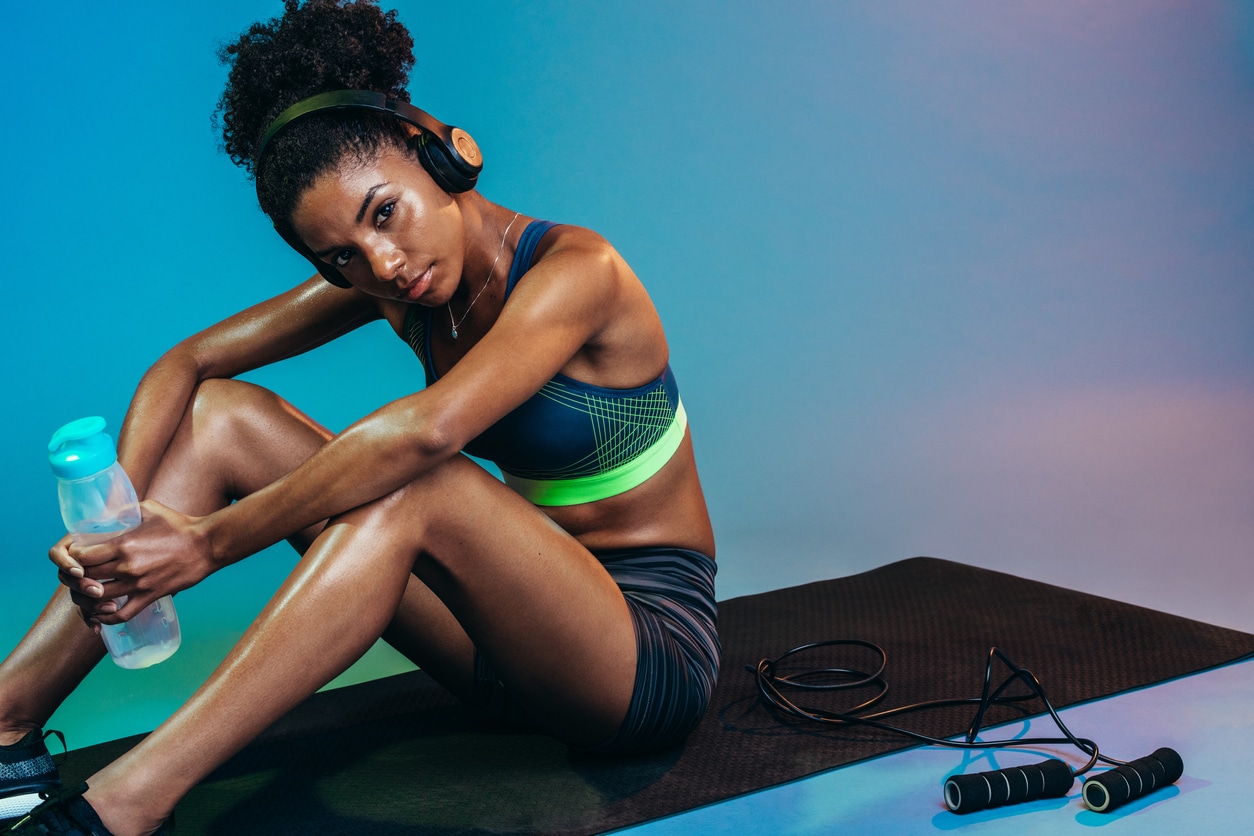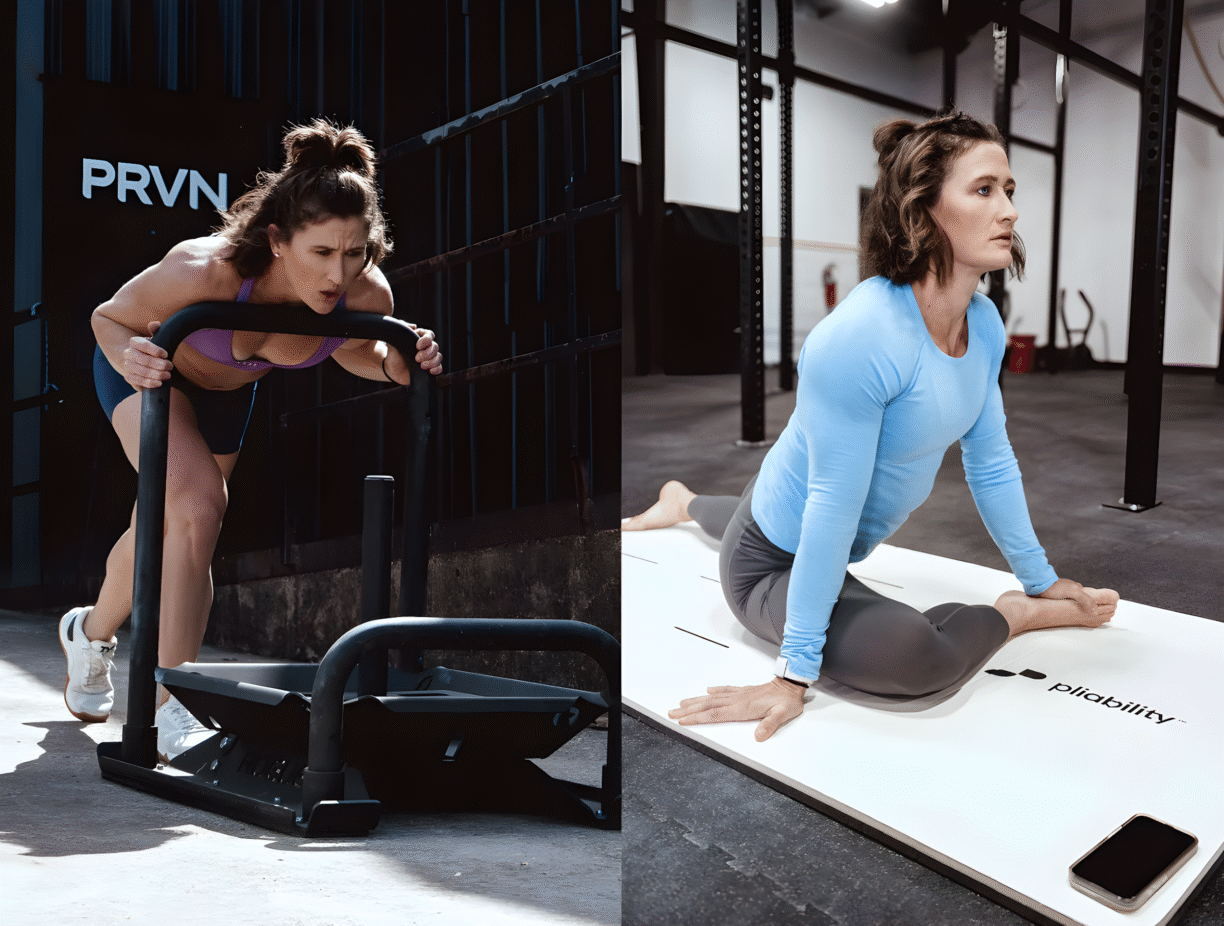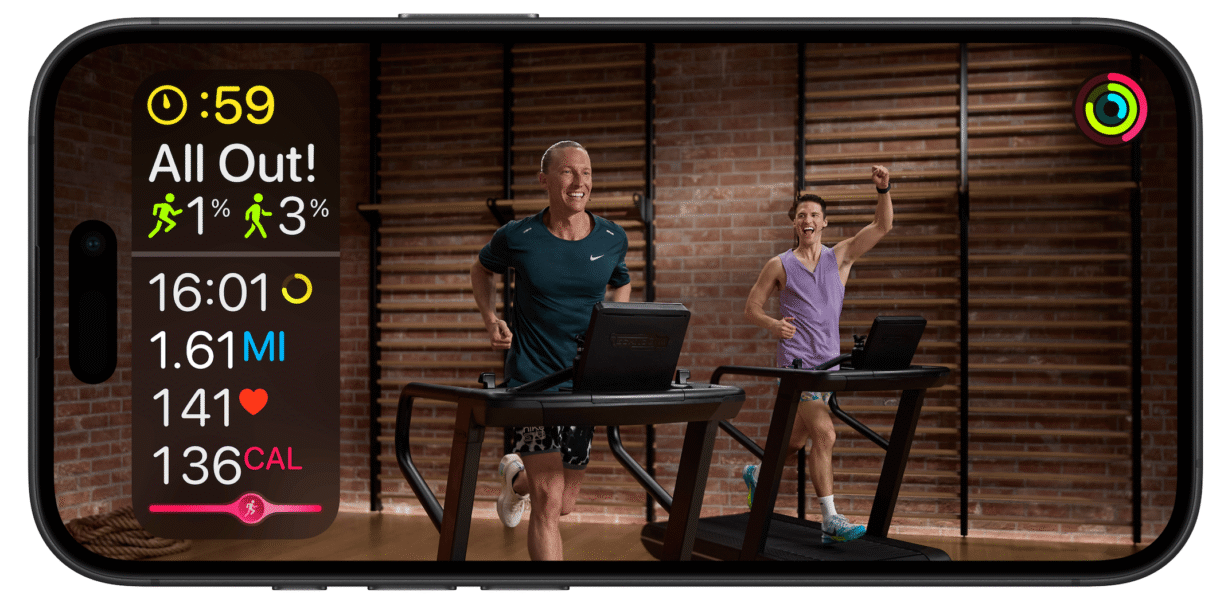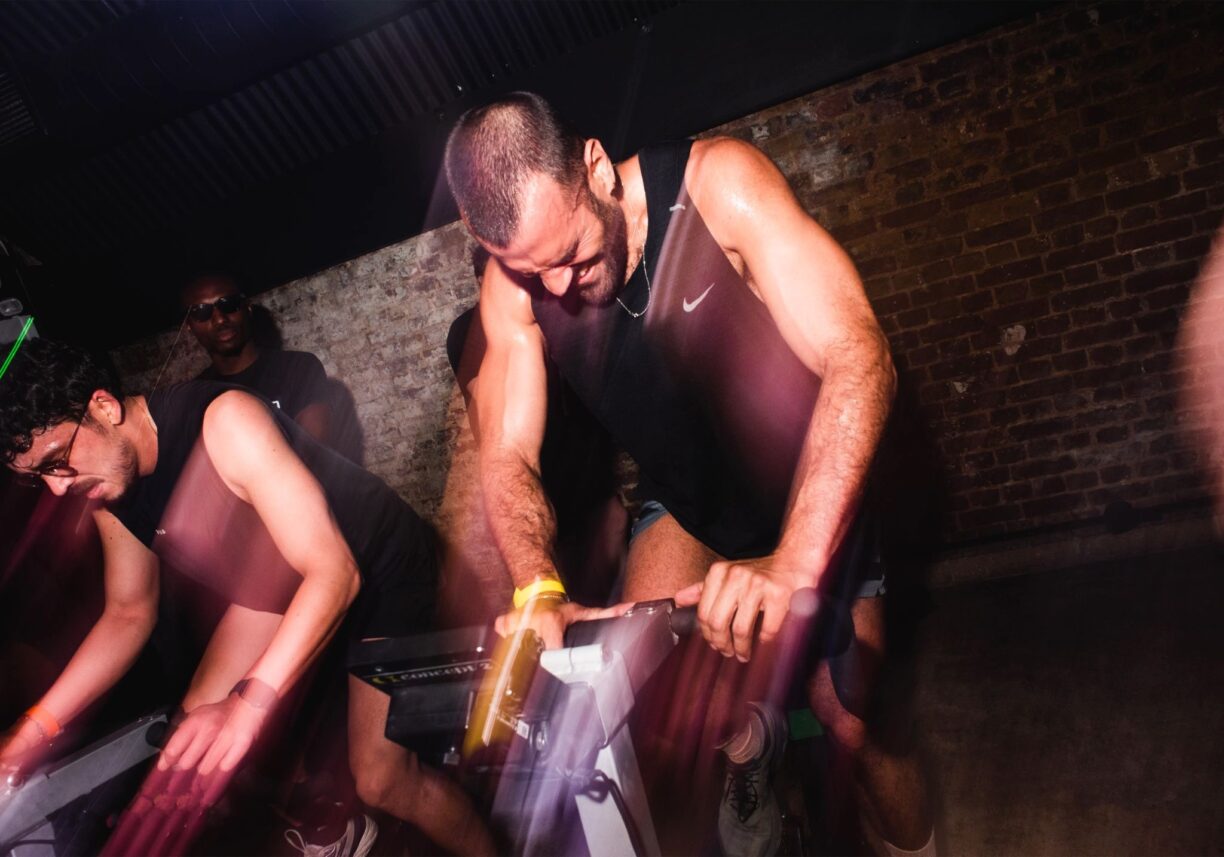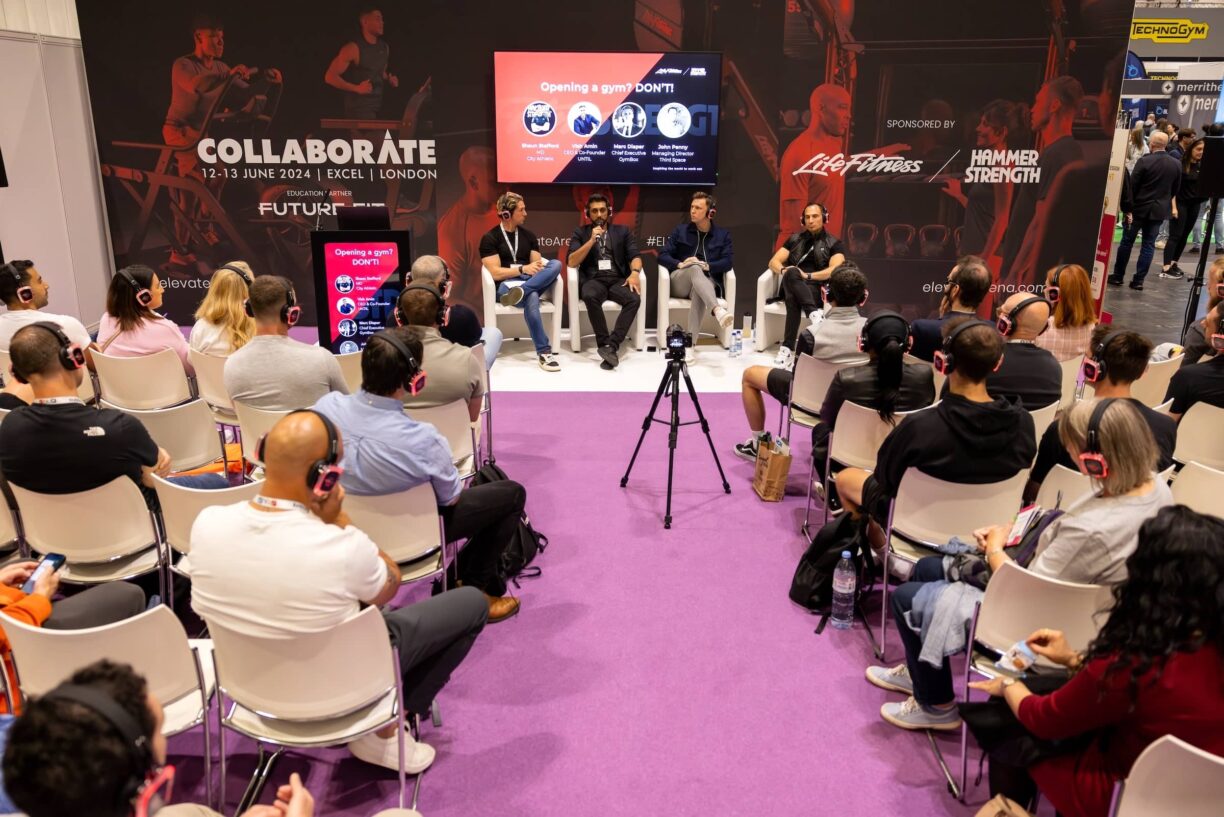As the wellness industry continues to boom, the start of each new year brings a fresh set of trends promising to help us live more healthily.
2019 was the year we learned that contract-less gym-hopping could shake up our workouts, at-home streaming services could provide on-demand solutions, and CBD oil can be factored into pretty much everything – from your morning coffee to your night-time skincare.
But forget all that now – because 2020’s alternative fitness and wellbeing trends are set to get even more niche, as consumers look for new ways to prioritise their mental and physical wellbeing. Here’s what to have on your radar…
Mobility Training
If there’s one fitness buzzword to get to know this year, it’s ‘mobility’. This term often gets mislabelled as ‘stretching’ or ‘flexibility’, but mobility is actually about improving and protecting the range of motion in your joints and muscles.
Mobility training can be particularly helpful for anyone who lifts a lot of weights. Strength training can quickly lead to tight myofascial tissue (a thin fibrous layer that surrounds our muscles and bones), so working on your mobility can help lengthen muscles and reduce unpleasant post-workout pain.
Classes usually include running through a number of ‘drills’. Think bent-elbow arm circles to release tension in the shoulders, spinal stretches and hip openers (it’s a bit like yoga but without the spirituality).
Expect to see more mobility coaches popping up on Instagram too, like Danielle Wills – a contemporary dancer, yoga teacher and aerial artist who uses her knowledge of movement to help others trip between backbends and pumping iron.
VR Fitness
Forget VHS tapes of Jane Fonda doing aerobics, headsets like Oculus Rift, HTC Vive and Windows Mixed Reality are adding an extra dimension to home workouts, allowing you to get a sweat on while you’re submerged in an alternate universe.
Games to get to know include BoxVR (£22.99, oculus.com), a boxing challenge that involves punching at oncoming targets and slipping out of the way of virtual barriers.
Gorn (£14.99, oculus.com) is another big release – a gladiator simulator that involves savagely taking down your opponent with tridents.
Then there’s Sprint Vector (£22.99, oculus.com), a high-octane athletics competition that’s basically the VR equivalent of the Olympics.
All of these fitness platforms can be accessed from the comfort of your living room, saving you less time on commuting to the gym.
Bespoke supplements
With the rise of DNA testing, we’ll be delving even further into the idea that wellness isn’t a one-size-fits-all approach next year.
Bioniq is a luxury £250 per month blood testing service that creates a personalised supplement based on your results. The idea is that it contains the exact cocktail your body needs – whether you’re lacking in a certain vitamin or just need a little helping hand in others.
Bespoke blood-tested supplements claim to help cut out the guesswork when it comes to popping supplements.
For example, lots of people are still totally unaware that taking too many supplements, or ones they don’t need, can cause harm.
Also, with some nutrients, the body can also only store a certain amount, so you might be wasting your money topping up on those.
After an initial month using the Bioniq service, you have another blood test to see if your levels have improved and make any necessary adjustments to your bespoke formula.
Functional Training Rigs
Who didn’t love swinging from the rings and monkey bars in the school gymnasium back in the day?
If you were a sporty child who enjoyed P.E. lessons, then you’ll be pleased to know they’re back – serving as inspiration for the boutique fitness scene.
At the heart of these workouts are functional training rigs – multi-functional, metal structures that feature chin-up bars, monkey bars, ropes and punchbags.
Think of them like grown-up climbing frames that allow you to utilise your own body weight in your workout; the Army have long used them for training.
Third Space and Sweat It (sweat-it.com) in London already offers strength classes that involve a variety of exercises on the frame of the rig.
Rigs Fitness in Birmingham are also ahead of the game with the trend. Get ready to see more of these adult playgrounds popping up in studios across the country.
Niche fitness trackers
As technology gets smarter, our tracking wearables are getting more specific – and they’re not just pretty smart watches that sit on your wrist.
Tech companies are developing all kinds of creative trackers, specifically designed for different sports.
For example, punch trackers are set to be a big trend for the coming year, as boxing fitness classes continue to boom.
Check out HYSKO (approx. £189.99, various UK stockists), two little pods that are sandwiched in your wrist wraps and connect to an accompanying app.
They can give you way more detail than a standard all-in-one tracker, recording the number, velocity and intensity of your punches.
You’ll see swimmers at your local lido lapping you with a Moov Now on their wrist – a super lightweight wristband designed track laps, turn time and distance per stroke.
Sustainable activewear
The term ‘sustainability’ has gained major traction in the fashion industry in recent years, as more of us are waking up to the ways our spending habits affect the environment.
So it’s no surprise activewear brands are looking at ways to produce ethical apparel too, from partnering with Fair Trade producers to sourcing recycled fabrics.
Some of our favourite green fitness brands include Now Then, a swimwear company that creates cossies from recycled ocean plastic, and Girlfriend Collective – a super trendy fitness company that use eco-friendly dyes and recycled fishing nets to create comfy separates.
If you care just as much about how your leggings look as you do the conditions they were made, there’ll be plenty of brilliant options available to keep you feeling at the top of your game next year.

